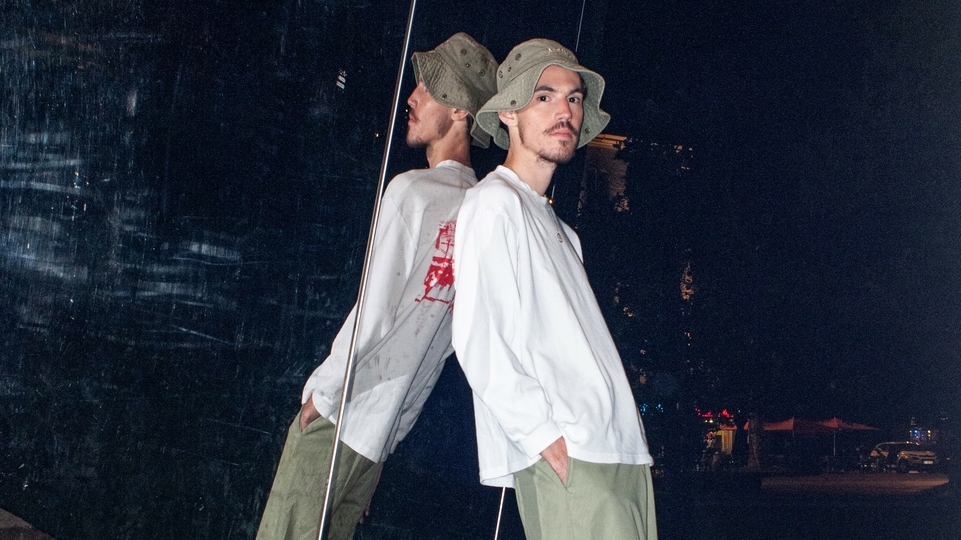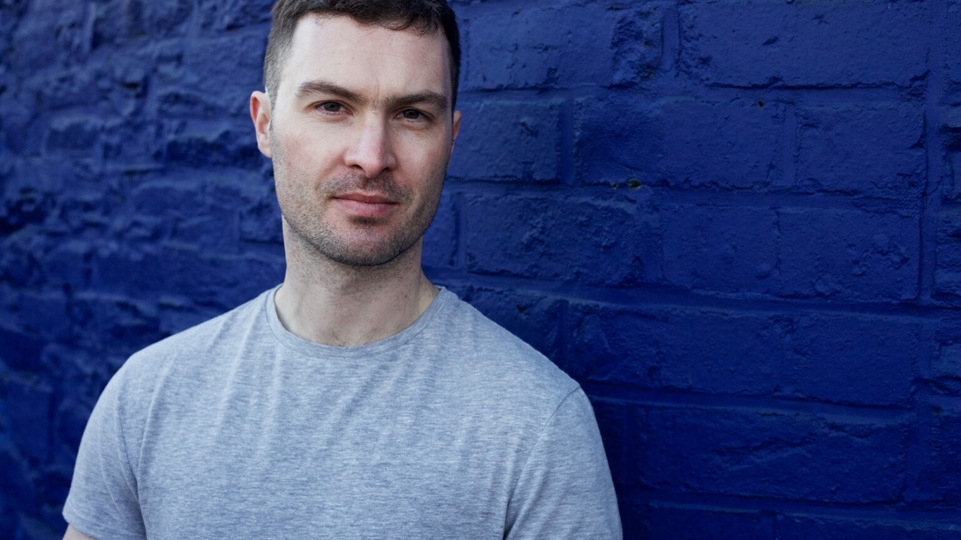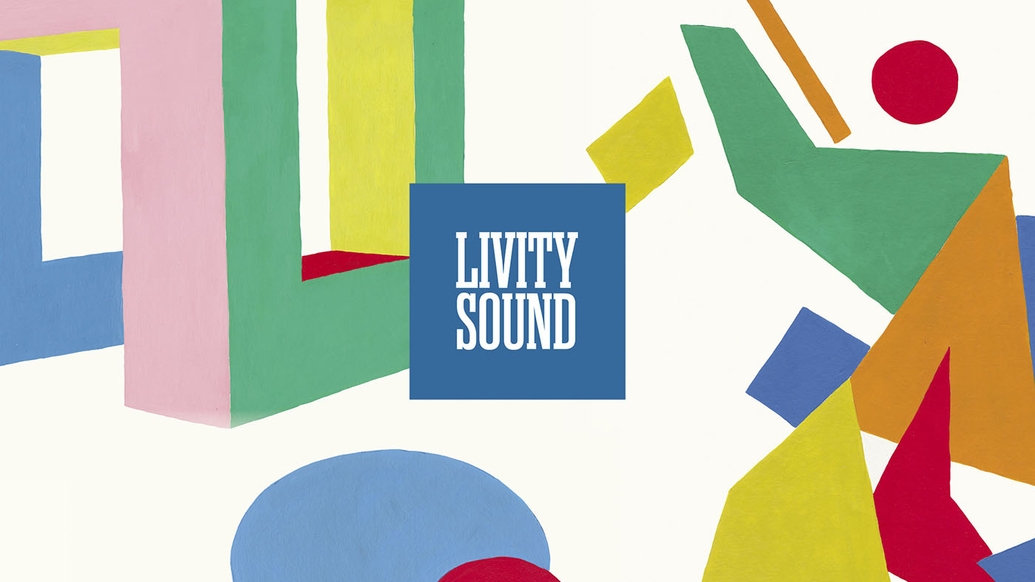
Livity Sound: a decade of daring club music
Bristol’s Livity Sound label has crafted a distinctive style and sonic blueprint, drawing from dub techniques but impossible to categorise. Celebrating a decade in existence with a new compilation, ‘Molten Mirrors’, founder Peverelist and Livity artists reflect on its sense of community, how its sound has evolved, and how it has influenced dance music in the UK and beyond
In 2011, the dust from the dubstep explosion was still up in the air. The initial UK wave had split between a formulaic festival sound and those trying to push the sub-bass phenomenon into newer, underground territories. From Hessle Audio’s experimental mutations to Joy Orbison’s warping electro on Loefah’s Swamp 81 label, Julio Bashmore dropping weighty house on Martyn’s 3024 label and Addison Groove’s footwork-inspired 808 workouts, the lines between styles were blurring with ever-increasing speed.
A decade on, genre lines are so dissolved that, arguably, you hardly notice that some of the UK’s most vital dance music scenes don’t have proper names. That’s certainly true for Peverelist. When he launched his Livity Sound label in 2011, with a 12-inch from himself and fellow Bristol resident Kowton, he simply wanted to carry on the open-ended energy of the early days of dubstep.
“I wasn’t going to mention the ‘D’ word,” says Pev with a smile. It’s a sunny morning in Bristol, and we’re sitting in a garden discussing the 10 year anniversary of Livity Sound. “In the very beginning of dubstep, it was very much an ‘anything goes’ attitude: all kinds of influences getting thrown in, intertwined with grime; and then, it quickly got canonised into a very specific sound. I wanted to bring that original spirit of a mixture of influences. From the start of the label, we’d play garage and UK funky, techno and house, dubstep and grime all in one night — and that’s something that’s carried on.”
As Livity Sound toasts a decade inside the dance with an extensive new compilation, ‘Molten Mirrors’, now feels like a fitting time to reflect on what Peverelist’s label represents, the music culture it operates in and the influence it’s had on club music.
There’s no definable term for the musical approach that Livity Sound has helped cultivate, but across an international cast of artists, terms like ‘bass music’, ‘Bristol bass techno’, ‘UK techno’ and ‘broken techno’ are thrown about. Long-time Livity affiliate and Bristol scene lynchpin Hodge sums it up best.
“I love the fact people struggle to come up with the appropriate tag for the music,” he tells DJ Mag. “That’s one of the things I find the most exciting — that weird place where nothing fits perfectly in a pre-existing mould.”
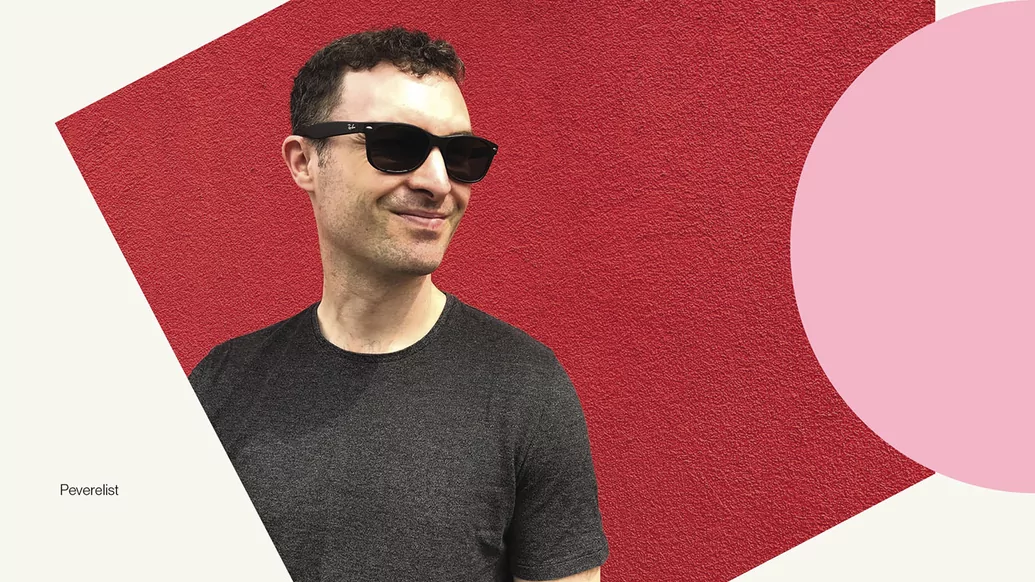

Livity Sound began as a vessel for solo and collaborative releases from Peverelist, Kowton and Asusu. “It was probably as simple as, ‘got an idea for a label, here’s some tracks’,” Kowton told us in a 2012 interview. “I think to give it any more semblance is to overegg it. If there is any kind of manifesto, it’s just dance music.”
Back in 2011, there was a genuine buzz in Bristol about Livity Sound. Pinch’s Tectonic and Peverelist’s Punch Drunk were among the most celebrated labels in the city’s soundsystem scene, having done much to establish a uniquely Bristolian slant on dubstep. Livity Sound seemed to build on that with renewed vigour, as the peak dubstep era gave way to a new wave of possibilities. When Peverelist, Kowton and Asusu played a test-run of their collaborative live show in the cramped confines of the Take Five Café basement, the sense of local pride and excitement in the crowd was palpable.
While there was plenty happening locally, new Bristol labels like Livity Sound were having an increasingly international impact. Where dubstep and grime had been relatively niche, regional sounds, by 2012 the abundance of online media and increasing bandwidth ensured the music was reaching further afield.
“When I moved to Bristol in 2012, there was a lot going on between Idle Hands, Livity Sound, Young Echo, Motorcycle Showrooms and Dirtytalk nights,” recalls designer Tess Redburn, who has created all of the artwork for Livity Sound since 2014. “It’s hard to remember, but it feels like Livity had always been there, because Peverelist and Kowton were so embedded in that whole ecosystem.”
“I discovered Livity Sound around 2012,” says Simo Cell, a French producer with a string of releases on the label. “It was the beginning of a new era for UK dance music. It was such a big slap in my face! It sounded so futuristic, so new. I was making music with a few friends in Nantes, and we were all really influenced by this new UK wave.”
As it happens, the energy Simo Cell was channeling with his friends in France was not that dissimilar to what was happening in Bristol. “When it started, I didn’t have any grand ambitions. It was one record at a time, just some friends doing music,” says Peverelist, looking back. “The plan was to have no plan, just see how things developed. I’ve obviously done a lot of travelling, I’ve met a lot of people and it all feeds back in, and things have just naturally evolved.”
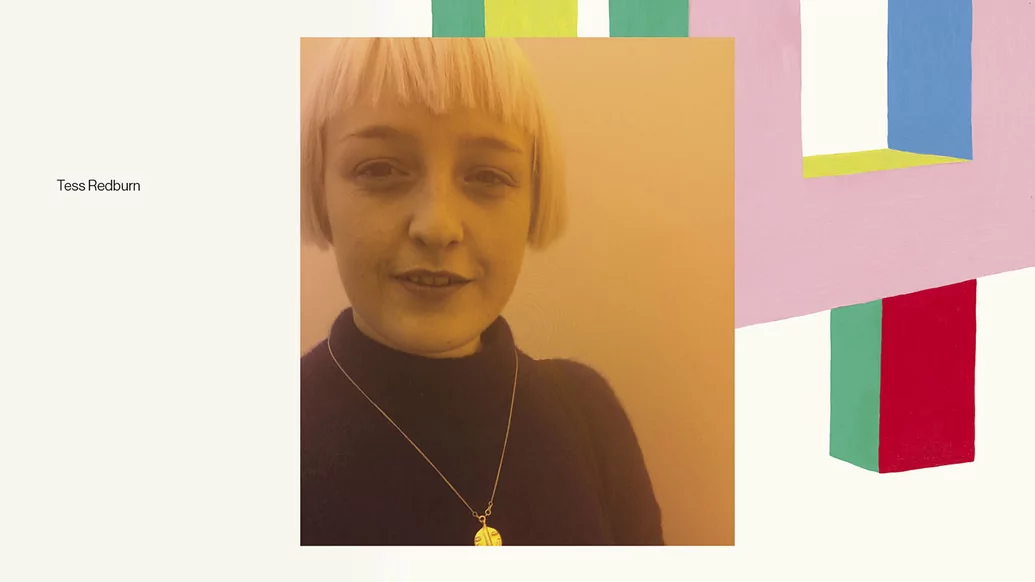
COMMON SOURCES
‘Molten Mirrors’ marks a decade of Livity Sound with as much fanfare as you’d expect the quiet, thoughtful Peverelist to muster. There are no lofty concepts or aggressive marketing plans — just a summation of where the label is at right now, naturally capturing the fragmented energy of contemporary club music.
From long-standing Bristol artists Hodge, Batu and Bruce to the more recent talents of Cando, Jurango and Surgeons Girl, scene-leading drum scientists Bakongo (known more widely as UK funky figurehead Roska) and DJ Plead to the madcap soundscapes of Azu Tiwaline, Two Shell and Toma Kami, there’s a lot of sonic ground covered. At its heart, the compilation is as much about cementing the international community that orbits Livity Sound as it is about distilling the label’s rich and complex sound. Listening to the extravagant scope of the music now, the only certainty is that the music has evolved in multiple directions from the lean and focused days of Peverelist, Kowton and Asusu.
“We live and grow up with a label,” says Azu Tiwaline, who was following Livity from the beginning, before Peverelist released her ‘Magnetic Service’ EP in 2020. “Ten years after, for sure and necessarily, there will be an evolution in our music. Livity was born in an ‘in-between time’ from dubstep to UK techno, and has always evolved over time, open to new artists, fresh and new vibes. I guess, as artists on the label, we are coming from the same source.”
The common sources when it was just Peverelist, Kowton and Asusu pooling their ideas into the label were the grounding principles of soundsystem music — drums and bass, with a tendency towards spacious production to give plenty of room for dub processing. The reductionist attitude is as much practical as artistic — a less cluttered track means the elements in the mix can hit heavier.
“Livity Sound was the whole reason I moved to Bristol, so when I got here, I followed absolutely everything they did,” says Chad Leotaud, one half of duo Cando with Owen Roberts.“Peverelist, Kowton and Asusu had a sparser, more simplistic sound, which they would release exclusively on Livity, and they started the reverse label Dnuos Ytivil to introduce other artists. In my opinion, they kept a tight seal on the sound; it was almost a new genre being created. But once the sound was established as a genre a few years later — ‘Bristol techno’, ‘broken techno’, whatever you want to call it — the label started to evolve and there were other labels, like Timedance, who followed the recipe, but added other flavours to create a completely different meal.”
One of the most striking elements of Livity Sound is the release artwork. In a crowded field of moody, murky UK club music aesthetics, Tess Redburn’s designs feel like a Technicolor lightning bolt on the record shop racks, nestled between white labels and black sleeves. The visual shift from Alex Digard’s earlier, hand-stamped designs towards Redburn’s colourful work signaled a sonic pivot towards more melodic elements: heard on tracks like Kowton’s ‘On Repeat’ and Peverelist’s ‘Undulate’. It’s only now, looking back, one can discern those brushstrokes all over Livity even before the artwork came along
If anything, Redburn’s artwork helped affirm that dimension of Livity in contrast to the greyscale tendencies in UK club music at the time. “A label needs a coherent aesthetic,” says Pev. “I think Tess does that really well. I think the colour brings a positivity with it... how can I say that without sounding too hippyish? Music is therapeutic — it’s a positive thing in people’s lives, so hopefully the artwork gets that feeling back to people, too.”
Redburn started working on the Livity releases in 2014 with a series of six remix 12-inches. An early run of figurative pieces gave way to more architectural, geometric designs. Even if the music has continued to be released in line with Pev’s tastes, Redburn’s sleeves are so intrinsic they end up defining eras in the label on their own.
“In terms of creative direction, Peverelist is one of the best clients to work for,” says Redburn. “He has his ideas and will input some references at the beginning of the design process, but then he tends to allow me a pretty free rein. In terms of whether the art reflects the sound of the label, I’m sure a lot of people would say it doesn’t. The scene Livity sits within is full of a lot of quite dark, gritty and serious-looking design, which is great, but Livity Sound doesn’t conform to that.”
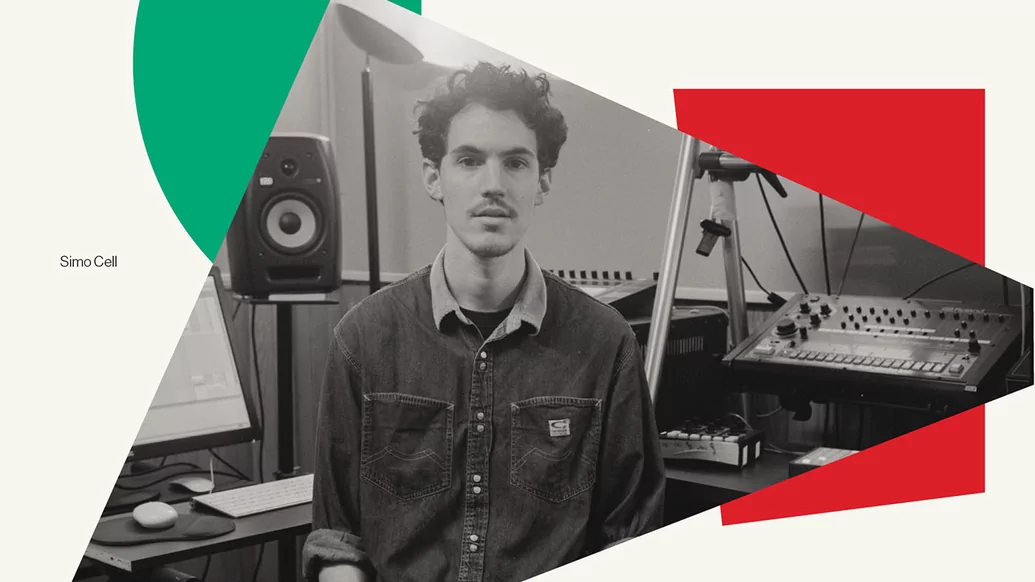

EVOLUTION
Even if the artwork hasn’t been a precise marker for shifts in the music, there are moments in the label’s back catalogue where the sound has noticeably evolved. When Simo Cell released the ‘Gliding’ EP in 2016, it was the first time an artist outside the immediate Bristol community had appeared on the ‘forwards’ branch. From the airy, dislocated house angle of lead track ‘Gliding’ to the low-tempo slugger ‘Obi 1’, there was a breadth to the four tracks which threw open the preconceived notion of what a Livity Sound record could be. “It’s definitely a Simo Cell record and not a Peverelist or a Kowton,” says Peverelist. “It was a shift, which I’m really up for. It’s good to grow.”
From that point on, the spread of names on Livity Sound bloomed. There’s Forest Drive West’s dub techno pointillism and Mosca’s lithe peak-timers, Via Maris’ psychedelic impressions and Toma Kami’s knotty, percussion-rich creations. What was once a Bristol-centric phenomenon that defined a very UK approach to electronic club music became a sprawling, global exploration of rhythm, tempo and bass. In club music in general, a greater emphasis on organic percussion emerged: Livity Sound responded in its own way, now more in dialogue with wider trends rather than ploughing its own furrow.
“I didn’t expect our track ‘Bleak’ to get such a positive and welcoming response from the label’s supporters,” Chad Leotaud says. “But after our release, I noticed the sound and aesthetic going into other avenues; more percussive releases from people like Bakongo and DJ Plead, and garage-led stuff from people like Two Shell and Al Wooton. I finally understood Peverelist’s vision: it wasn’t about giving you something you expect.”
“Little by little, Livity Sound began to open up to more artists, which also shows ‘Bristol UK bass’ has become more accessible,” agrees Simo Cell. “Many young, talented producers have started to identify with this music. Simultaneously, bongo, conga, djembe and timpani drums have conquered clubs in recent years, and there have been many percussive elements in house, bass, techno and dancehall rhythms.”
Even as percussive palettes become broader and artists find intriguing new ways to express rhythm, Livity Sound has reached into other areas of sound too. The last record of 2020 was Surgeons Girl’s ‘A Violet Sleep’, which swerved explicit drums for a more melodic, synth-led approach. It doesn’t sound like much else from the label’s back catalogue, but there’s a winsome romanticism in the composition that aligns quite naturally with the expressive touches on Peverelist’s ‘Tessellations’ album or the fluttering patterns of Leif’s ‘Igam-Ogam’ EP.
“The Surgeons Girl record is me thinking, ‘We need to turn another page,’” says Peverelist. “I’m 10 years older, and maybe I want to bring some of my other interests to the fore.”
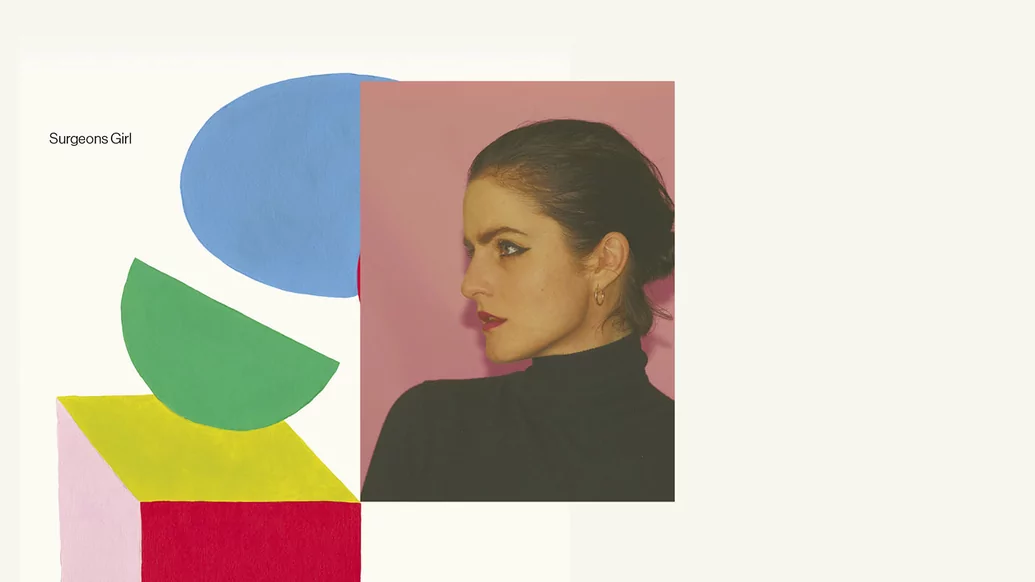
COMMUNITY
There’s no telling where Livity Sound might head in the future. “There’s no plan!” Peverelist whispers, between efforts to pin down his intentions. It was easier to square off the personal nature of it all when the roster lived no more than a 20-minute cycle ride from each other. Now, the label stands more like a major independent within club culture, with an authoritative air at odds with the modesty behind the scenes.
Its activity since the upheaval of 2020 has only served to solidify this idea. When everything related to club culture was cast adrift in the wake of the Covid-19 pandemic, Livity Sound pressed on with a busy release schedule. “I was quite determined not to pause,” says Peverelist. “I think a lot of people didn’t really know what to do. I was very aware there needed to be some momentum with this kind of unknown scenario, for everyone’s benefit.”
But what of the absurdity of releasing club music in a clubbing drought? “Radio hasn’t stopped,” he counters. “Ultimately, I’m a music fan, and I haven’t stopped looking for music and buying music. People do mixes, or invite their mates round for a mix and all that stuff. It’s just the club element that’s on pause.”
If there’s one thing the pandemic has taught the global clubbing community, it’s that dance music has meaning even when there is no dancefloor. Not everyone who buys a Livity Sound release is doing so with the expectation of playing it out in a club. Fans, bedroom DJs and collectors feed into the communal mix as much as the casual partygoers, nightlife workers and online observers, in remote places and so on. If there’s one thing Peverelist wants to engender with his label, it’s a sense of community.
Club music has traditionally centred around community through physical spaces, and over time, Livity Sound has played its own part in Bristol’s close-knit network of music obsessives. Pre-pandemic, Peverelist and Hodge ran a series of smaller parties at The Love Inn: a typically Bristolian venue, more like a bar with a system and a dancefloor than a full-blown club. With guests ranging from A Made Up Sound to Peach, Laurel Halo to Overmono, the booking policy was no joke even if the mood was relaxed.
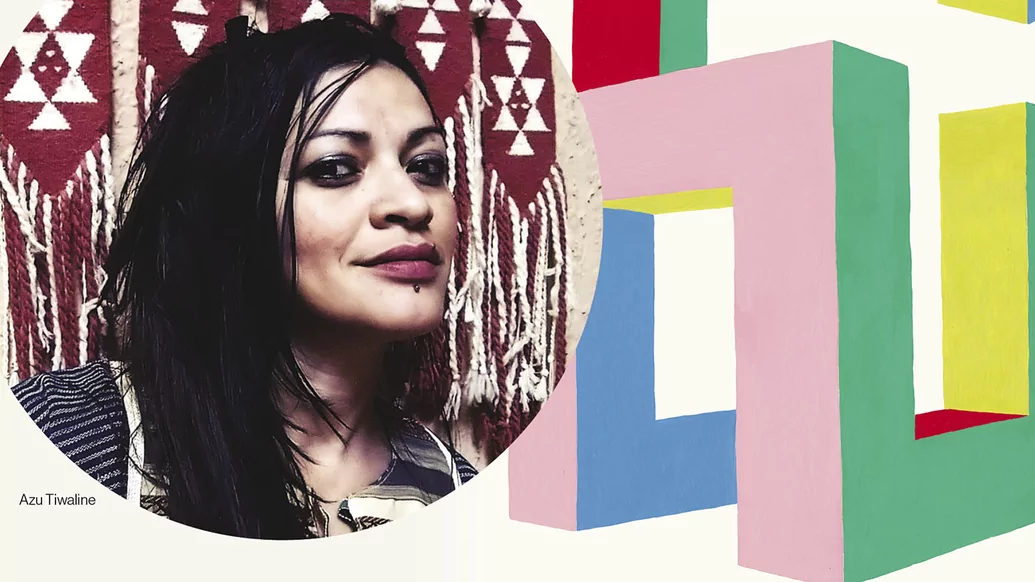
Given some of the prominent names that pass through this midweek session, it’s a reminder of the role Livity Sound plays beyond its own releases, as part of a global scene. More than just a source of club tracks and interesting new artists, the label’s influence has arguably fed into the development of underground club music more broadly. When it started in 2011, people all over the world already looked to Bristol as a benchmark for forward-thinking, unconventional music. “I have a lot of influences,” says Azu Tiwaline, who has split her time between France and Tunisia over the past 10 years, “but Livity and in general the Bristol sound have a strong one on me. I consider myself as a satellite, hoping my music brings something a little different to this large music family.”
What was once a definable (albeit nameless) stamp of UK-rooted soundsystem music is now a node in a tangled network, where different styles and energies emanate from different parts of the world, swapping motifs and approaches back and forth. Such rampant eclecticism has positives and negatives, but at its best it celebrates the universality of music. It’s harder to gauge how a label like Livity Sound wields influence now compared to 10 years ago, when the very nature of influence has changed so much. These days, the label stands more as a byword for quality than a specific sound.
“From what I’ve seen over the last five years, the wider scene reflects a hybrid melting-pot of genres within the broader term of electronic music,” says Surgeons Girl. “This seems now to be much more inclusive. Genres are much more open in terms of styles, tempo and concepts, and the glue is often the collective, local music community, or indeed labels like Livity Sound.”
In the wake of ‘Molten Mirrors’, you can expect Livity Sound to continue along its own singular trajectory. At the time of writing, restrictions have eased in the UK, and Pev and Hodge have been running a modest string of gigs at new Bristol arts venue Strange Brew, focusing on live performances from the likes of The Transcendence Orchestra and K-Lone. There’s also a series of bigger club events planned at integral Bristol dancehall Trinity Centre later in the year.
Meanwhile, the music will keep on coming, with the label’s milestone 50th release looming without any fanfare — quite simply another essential slab of daring, dynamic club music to help launch Livity into another 10 years of soundsystem exploration.


